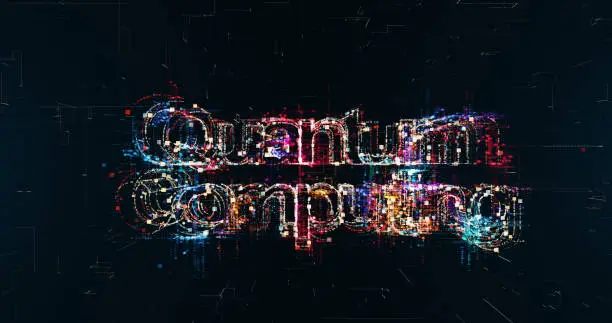
Quantum computing once confined to theoretical physics and science fiction is rapidly emerging as one of the most transformative forces in technology. As of 2025, we’re standing on the brink of a ne,w computing era. Major players like IBM, Google, and Intel are racing to build powerful quantum machines capable of solving problems that would take today’s supercomputers millions of years. But what exactly is quantum computing? How does it work? And more importantly, what impact will it have on industries, cybersecurity, medicine, and daily life?
This comprehensive guide demystifies quantum computing for tech users and explores how this next-generation technology is poised to reshape our digital world.
1. What Is Quantum Computing? (Explained Simply)
At its core, quantum computing is a revolutionary approach to processing information.
Classical vs. Quantum Computers:
- Classical computers use bits — 1s and 0s — to store and process data.
- Quantum computers use qubits, which can be 1, 0, or both at once (a state called superposition).
Quantum computers also take advantage of:
- Entanglement: Qubits become linked so that the state of one affects the other instantly.
- Quantum Interference: Used to eliminate wrong answers and amplify correct ones in calculations.
These properties allow quantum machines to handle exponentially more data than traditional systems.
2. Why Quantum Computing Matters
Quantum computing isn’t just faster — it’s differently powerful. It can solve complex problems that classical computers can’t touch within a reasonable time frame.
Potential Capabilities:
- Simulating molecular structures for drug development
- Optimizing financial models
- Breaking modern encryption methods
- Accelerating machine learning algorithms
- Solving logistical and routing problems for global supply chains
Analogy: Think of quantum computing not as a faster car, but as an entirely different mode of transportation — like teleportation.
3. Key Players in Quantum Computing (2025 Update)
Several tech giants and startups are leading the charge:
- IBM Quantum: Offers public access to quantum computers via IBM Q Experience.
- Google Quantum AI: Achieved “quantum supremacy” in 2019 and now developing 1000+ qubit systems.
- Intel: Working on scalable silicon-based quantum processors.
- Microsoft Azure Quantum: A cloud platform supporting multiple quantum hardware providers.
- IonQ & Rigetti: Pioneers in trapped-ion and superconducting quantum systems.
Government Backing: Countries like the U.S., China, and Germany are investing billions in quantum R&D.
4. Industries That Will Be Transformed
Quantum computing is expected to revolutionize multiple industries:
a. Healthcare & Drug Discovery:
- Simulate complex molecules to design life-saving drugs
- Speed up vaccine development (as seen post-COVID)
b. Finance:
- Risk analysis and fraud detection
- Portfolio optimization in real-time
c. Cybersecurity:
- Could break RSA and ECC encryption (creating urgency for quantum-resistant algorithms)
- New protocols for secure quantum communication (quantum key distribution)
d. Manufacturing & Logistics:
- Optimize supply chains
- Predict maintenance issues before failure occurs
e. Artificial Intelligence:
- Quantum-enhanced machine learning (QML)
- Faster pattern recognition and training models
5. Quantum Supremacy: What Does It Mean?
“Quantum supremacy” refers to the point at which a quantum computer can perform a task no classical computer can achieve in any practical timeframe.
Milestone:
- In 2019, Google claimed it achieved quantum supremacy by solving a problem in 200 seconds that would take a classical supercomputer 10,000 years.
2025 Outlook:
- Supremacy demonstrations are now common, but practical, real-world applications are still in early development.
Quantum computing is promising, but it’s not without hurdles:
- Qubit Stability: Qubits are extremely sensitive to noise and temperature.
- Error Correction: Quantum errors must be corrected with sophisticated techniques.
- Scalability: Building large, stable systems remains difficult.
- Cost: Quantum machines are expensive to build and maintain.
- Software Tools: Programming quantum systems requires new languages (e.g., Q# or Qiskit).
7. Quantum Computing and Cybersecurity
One of the biggest implications of quantum computing is its impact on encryption.
The Threat:
- Classical encryption (RSA, ECC) can be broken by powerful quantum algorithms like Shor’s Algorithm.
The Response:
- Development of post-quantum cryptography (PQC) by NIST and global standards bodies.
- Adoption of quantum key distribution (QKD) and quantum-safe VPNs.
What Tech Users Can Do:
- Stay informed about updates in digital security
- Avoid long-term reliance on outdated encryption standards
8. How Tech Users Can Get Involved with Quantum Computing
You don’t need a Ph.D. in physics to explore quantum computing.
Ways to engage:
- Use IBM Q Experience or Microsoft Azure Quantum for hands-on practice
- Learn quantum programming with Qiskit, QuTiP, or Cirq
- Take free courses on platforms like Coursera, edX, and Brilliant
- Join communities like Quantum Open Source Foundation (QOSF)
Even basic understanding will become valuable as quantum technology becomes more mainstream.
9. Common Myths About Quantum Computing
Myth 1: Quantum computers will replace classical computers.
- Truth: They will complement them for specific tasks, not replace them.
Myth 2: Quantum computers are ready for everyday use.
- Truth: We’re still in the Noisy Intermediate-Scale Quantum (NISQ) era, not yet ready for commercial-scale computing.
Myth 3: All encryption will be obsolete overnight.
- Truth: It will be a gradual process — transition plans are already in motion.
10. The Future of Quantum Computing (Beyond 2025)
Quantum computing in 2025 is still at an early stage, but the future holds exciting possibilities:
- Scalable 10,000+ qubit systems by 2030
- Quantum cloud platforms enabling businesses to rent quantum power
- AI-designed quantum algorithms
- Quantum Internet with near-instant, secure communication
- Cross-platform hybrid computing: Quantum + classical systems working together
Just like the personal computer revolution of the 1980s, quantum computing will spark a wave of new jobs, industries, and innovations.
FAQs
Q1: Can quantum computers run normal software?
A: No. They require specialized quantum programming languages and algorithms.
Q2: Are there any real-world uses for quantum computing today?
A: Yes, in research, materials science, and machine learning — but still experimental.
Q3: How far are we from commercial quantum computers?
A: Experts estimate widespread commercial use may arrive by 2030.
Conclusion
Quantum computing is more than hype, it’s the foundation of a coming digital revolution. By manipulating the fundamental laws of physics, these machines will open doors to discoveries we can’t yet imagine. While the technology is still evolving, its impact will be profound across cybersecurity, medicine, finance, and AI.
For tech users, now is the time to start learning, exploring, and preparing. Because in just a few short years, quantum will no longer be optional knowledge — it will be essential.
Stay curious, stay informed, and prepare for a world reshaped by quantum logic.






